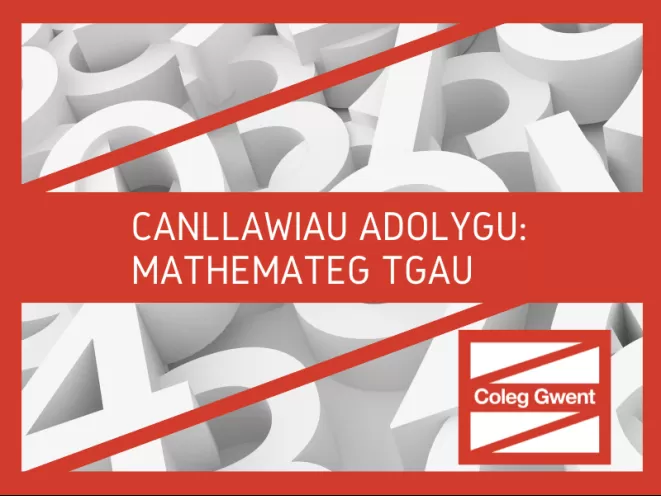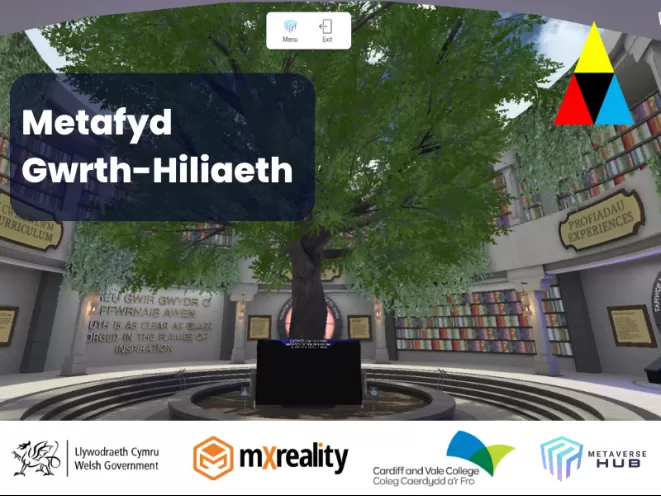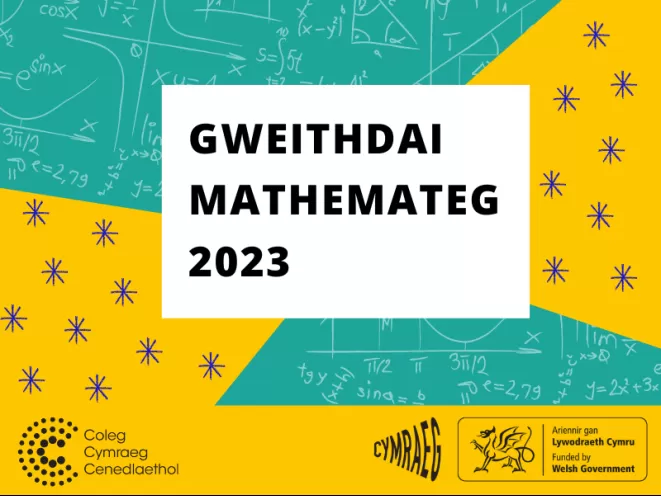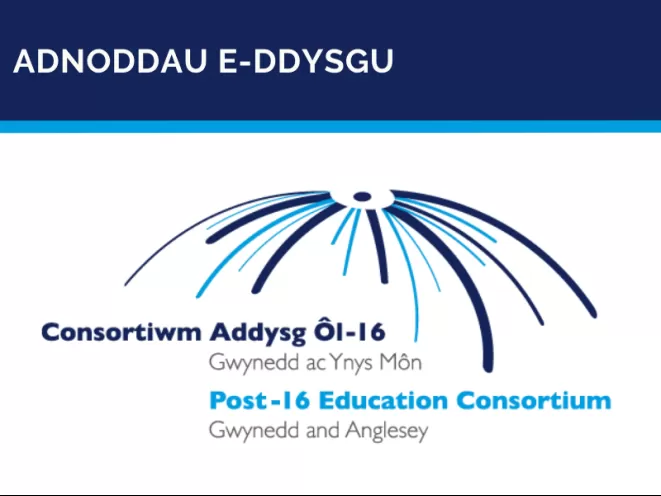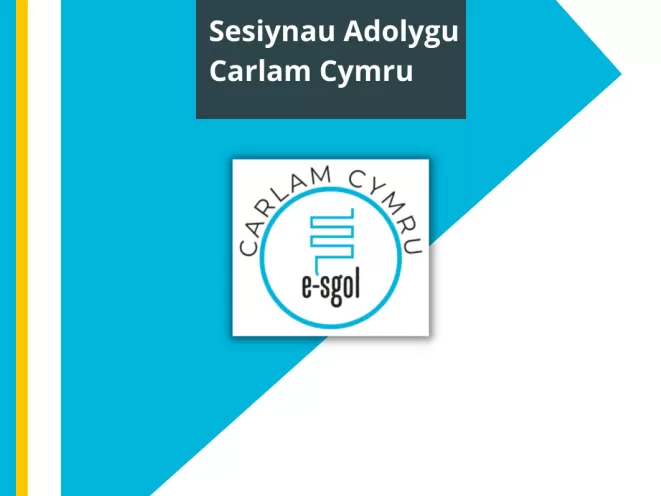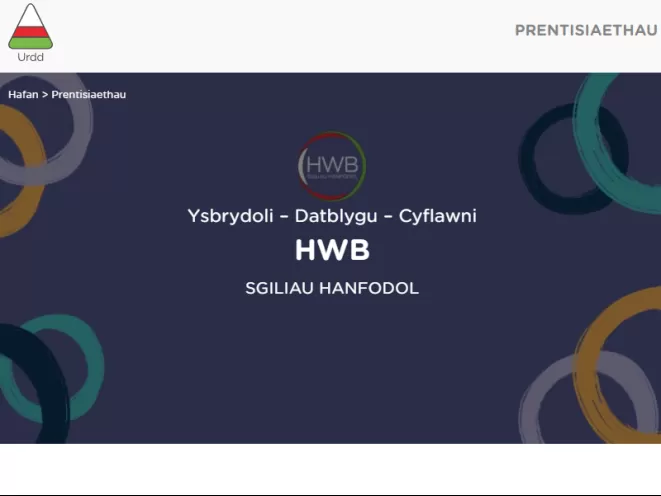Revision guides kindly provided by Coleg Gwent to assist students and learners sitting Maths GCSE exams. There are separate guides for the foundation and intermediate levels.
GCSE Mathematics Revision Guides
Welsh Government Anti-Racist Virtual World
In collaboration with mXreality, and working with teams specialising in the subject from Cardiff and Vale College, the Welsh Government has developed an immersive, accessible and expansive 3D metaworld environment, comprising of five areas relating to different themes. They look forward to sharing their experiences, stories and anecdotes with you, and you are invited to engage in an immersive learning experience, which will enhance your understanding of the world. As you explore this world, you are asked to engage with the resources and reflect on their significance. This is an opportunity for you to learn about the cultures and traditions that make up part of our shared identity. The Metaworld consists of the following sections: Experiences The Metaworld of Experiences is situated on a street of representative semi-detached houses in Wales, with access to six houses (three on each side of the street). In each of the houses, you can learn more about the background and interests of the individuals who live there by watching the video playing on the TV and by clicking on some of the interactive items (identified by a three spot icon) in the living room. Immersive Studies The Immersive Studies Metaworld consists of a main lower level area and three upper level areas. The main area has a variety of items of geometrical interest because of their shapes and patterns, which show the connection between mathematics, science and nature. You can learn more about these items by clicking on them. A QR Code is also visible on a panel near some items, which can be scanned with your mobile phone's camera to view a 3D or Augmented Reality (AR) version of the item on your device. The higher level includes: Mathematics room – allows visitors to explore the importance and history of mathematical and geometrical numbers and shapes Hair and Beauty Room – allows visitors to familiarise themselves with the history and origins of hair and beauty Inventions Room – educates visitors about some significant inventions and early contributions to contemporary life World Timeline The World Timeline Metaworld consists of a main central area and four geographic regions, all of which you can access via a tunnel from the central area. Each tunnel displays information that presents the background, identity and image of a representative individual from that region. Each of the four regions (detailed below), comprises four time periods, allowing visitors to experience architecture, images, and representational information in relation to ancient times, medieval times, early modern times, and the world today. The four regions available in this Metaworld are: Africa, Indian Subcontinent, Middle East and Northern Europe. As you move around the world timeline, in the central area and in each of the regions, interactive items you can click on link to videos that present useful additional information. QR Codes are also available in some of the regions, which can be scanned with your mobile phone's camera to view a 3D or Augmented Reality (AR) version of the item on your device. Curriculum This section allows you to engage with a wide range of carefully crafted topics in order to surmise that their plan will be anti-racist. The section consists of the following topics: Sociology Hair & Beauty Health and Social Care Black Feminism Politics Mathematics Film Studies African philosophy English for speakers of other languages Basic Education for Adults Additional Learning Needs Tutorial
Mathematics Workshop 2023 (Welsh Medium)
Interested in studying Mathematics at University? Want to get a glimpse of life as a Maths student and find out what career a Maths degree could lead to? This is your chance to find out more, get a taster of some modules and ask lecturers and alumni your questions! Join us in March for a series of live online Maths workshops. Thursday 9 March 2023, 7pm – Aberystwyth University. Thursday 16 March 2023, 7pm – Cardiff University. Monday 19 June, 09:30 am - Employability If you have any questions please contact l.rees@colegcymraeg.ac.uk.
Post-16 Education Consortium Anglesey and Gwynedd's E-Learning Resources
A series of interactive bilingual e-learning resources on the following subjects: The benefits of studying Childcare through the medium of Welsh or Bilingually The benefits of studying Construction through the medium of Welsh or Bilingually The benefits of studying Business through the medium of Welsh or Bilingually The benefits of studying Catering through the medium of Welsh or Bilingually Resitting GCSE Mathematics Resitting GCSE Welsh Engineering Level 3 A Level Music A Level French AS Level IT
Carlam Cymru Revision Sessions
Recordings of revision sessions in different subject areas that were commissioned by e-sgol for GCSE, AS and A level students during 2021. There are GCSE revision sessions on: Mathematics Welsh Welsh as a second language Biology Physics Chemistry History Geography There are AS revision sessions on: Mathematics Welsh Biology Physics Chemistry History Geography There are A level revision sessions on: Mathematics Welsh Biology Chemistry History Geography Psychology
Philip Jonathan, ‘Cynrychioliad amharamedrig ar gyfer cyd-newidynnau amlddimensiynol mewn model gwerthoedd eit...
A statistical methodology is presented to model extreme values from non-stationary environmental processes. The methodology is based on a generalized Pareto model for peaks over threshold of the environmental process combined with a Voronoi representation for the variation of extreme value model parameters with multi-dimensional covariates. Bayesian inference using reversible-jump MCMC, incorporating Metropolis-Hastings within Gibbs sampling, is used to estimate the joint posterior distribution of all parameters of the Voronoi representation. The methodology is applied to characterise extreme ocean storm severity with direction and season. The fitted model is validated by comparing the characteristics of data simulated under the model with those of the original sample data. Further, the model is used to estimate the distribution of maxima of peaks over threshold corresponding to return periods much longer than the period of the original data.
Mathematics in Sport
A website that gives users a taste of how mathematics is relevant in sport, whether that is to improve our understanding of a particular scenario, improve equipment design, or to optimisize a strategy like the one that faces a team in a F1 race. This learning resource includes a review of numeric and geometric sequences and series, and uses these in the context of choosing a pitting strategy in a F1 race. The resource includes an interactive game where up to three learners can compete against each other by comparing different strategies, and check their solutions to the exercises. The website was created by Dr Tudur Davies and Mr Jakub Sowa from Aberystwyth University. The project was supported by a small grant from the London Mathematical Society.
Hwb - Essential Skills (Urdd)
The Hub offers bespoke qualifications and training in the key subjects, Communication, Numeracy and Digital Literacy. Individuals can work towards Entry 2 to Level 3 Essential Skills qualifications, or work to improve skills while undertaking another program of learning. The Hub is open for training providers for them to be able to refer learners who wish to undertake Essential Skills qualifications through the medium of Welsh. WHAT DOES THE LEARNING PROGRAMME INCLUDE? Initial Assessments Individual learning plan Access to virtual workshops 1: 1 Sessions Access to resources, session recordings and e-portfoli Individual tasks that’ll be assessed with feedback Controlled task and confirmatory tests (including practice tasks) Certificates
Mathemateg Pob Dydd 2
Having good maths skills are important for everyday life. In fact, you may have never noticed how often you use maths on a day-to-day basis. This free course is an introduction to Level 2 Essential Skills in maths that’s designed to inspire you to improve your current maths skills and help you to remember any areas that you may have forgotten. Working through the examples and interactive activities in this course will help you to, among other things, calculate how much paint you'll need for decorating, convert currencies or make progress in your career or further education. To complete this course you will need access to a calculator, a notepad and pen, and a protractor. This is a free OpenLearn resource and a full description can be found by following the link.
Everyday Maths 1 (Welsh)
Have you ever noticed how often you need maths skills in everyday life? This free course serves as good preparation for Level 1 Functional Skills in maths, and whilst it does not cover all aspects of the current 2019-20 curriculum, it is designed to inspire you to improve your current maths skills and help you to remember any areas that you may have forgotten. Working through the examples and interactive activities in this course will help you to, among other things, run a household or make progress in your career. To complete the course you will need access to a calculator and a notepad and pen. This is a free OpenLearn resource and a full description can be found by following the link.
Mathematics Revision
Mathemateg.com byd Dr Gareth Evans includes a whole host of resources for the study of mathematics from Year 7 to year 13. Use the menu at the top of the page to navigate the site. Click "Login as a visitor " to access any course. On site you can download work packs, watch review videos, try to review quizzes or seek old exam papers.
Mathematics with Bubbles
This website includes an introduction to how bubbles can be used to solve a mathematical problem in optimization, known as the Steiner Problem. The aim in this problem is to find the shortest way of connecting together n points (which could denote towns or cities) positioned on a plane. To solve the problem, we will make connections with another problem in which we find minimal surfaces (e.g using bubbles). The website includes two sets of exercises, the first is aimed at learners in years 10-11 while the second is aimed at learners in years 12-13. The first set of exercises mainly involves geometrical calculations (in particular trigonometric calculations), while the second set also includes exersises in finding limits and differentiation.

